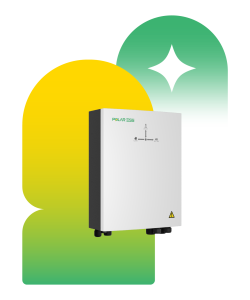Do solar inverters get hot during operation? This is a question many homeowners and installers ask when evaluating solar energy systems. Since inverters are the heart of every photovoltaic setup, ensuring their long-term stability and performance is critical. At POLAR ESS, we believe it’s essential to educate users on how temperature affects inverter function—and how our systems are built to manage it.
Table of Contents
ToggleWhy Do Solar Inverters Generate Heat?
Yes, solar inverters do get hot, especially under prolonged exposure to direct sunlight or when operating at high capacity. Inverters convert DC power from solar panels into usable AC electricity for homes and businesses. This energy conversion process naturally produces heat. If not dissipated effectively, this heat buildup can lead to thermal throttling, reduced efficiency, and even shortened equipment lifespan.
However, it’s important to note that modern inverters, including the ones we design at POLAR ESS, are engineered with advanced cooling mechanisms. These systems include intelligent thermal management, heat sinks, and sometimes active cooling fans to ensure stable operation across a wide range of climates.
How We Address Temperature Management
At POLAR ESS, we take inverter temperature regulation seriously. Our all-in-one hybrid systems and energy storage solutions are developed with both passive and active cooling strategies. By integrating smart temperature sensors, our inverters automatically adjust output or activate cooling functions when thermal thresholds are approached.
So, while solar inverters do get hot, the real question becomes: how well do they handle that heat? Our devices are designed with resilience in mind, allowing users to benefit from consistent performance—even in hotter environments. Proper placement and ventilation also play a major role, which is why we provide installation guidelines that help prevent unnecessary exposure to extreme temperatures.
Choosing an Inverter Designed for Durability
There’s a difference between an inverter that tolerates heat and one that truly manages it well. POLAR ESS inverters are optimized for home and commercial use, with compact designs, IP65-rated enclosures, and intelligent software that prevents overheating. This combination not only improves safety but also extends the operating life of the equipment.
Moreover, our inverters are designed to work seamlessly with our lithium battery storage systems. Together, they create a unified energy solution that maximizes efficiency, even under demanding conditions. Our platform also includes energy management software, giving users full visibility and control over power flow, consumption, and system health—including temperature data.
Conclusion
In summary, do solar inverters get hot? Absolutely. But overheating doesn’t have to be a concern when you choose well-designed equipment. At POLAR ESS, we offer solar inverters and energy storage systems that are tested for performance and safety under real-world conditions. Our all-in-one gateway solutions combine smart inverter control, battery storage, and user-friendly monitoring in one compact unit.


